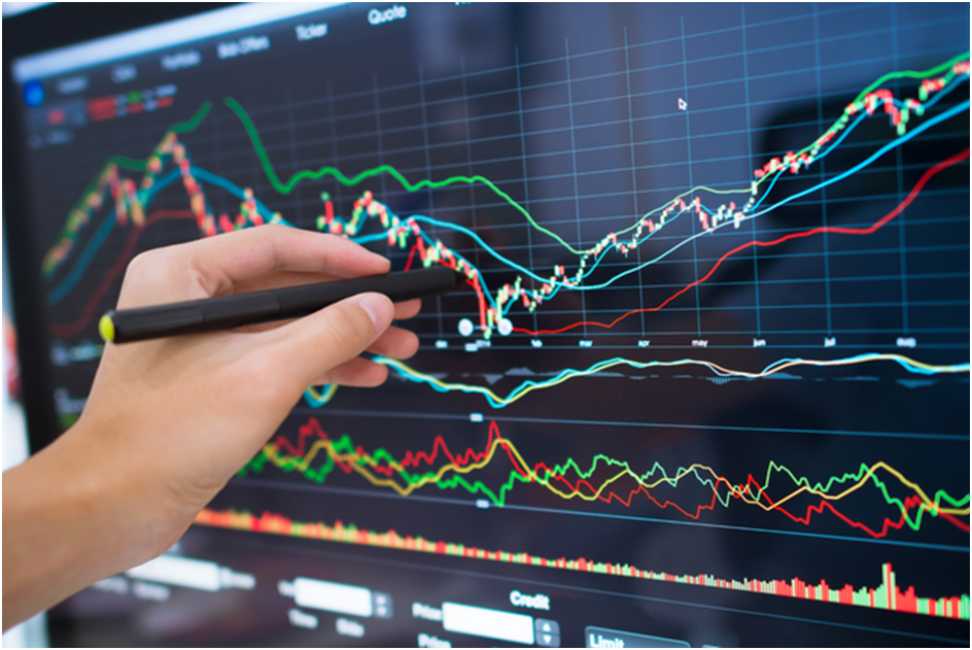Are you curious about the differences between trading forex and stocks? This article explores the key distinctions between these two popular investment options, helping you understand the unique characteristics and benefits of each. Whether you’re a seasoned trader or a newcomer to the market, this comparison will provide valuable insights.
Introduction to Forex and Stocks
Forex, short for foreign exchange, refers to the global marketplace where currencies are bought and sold. Traders in the forex market speculate on the fluctuating exchange rates between different currencies, aiming to profit from these changes. On the other hand, stocks represent ownership in a company and are traded on stock exchanges. Investors in the stock market buy and sell shares of publicly traded companies, with the goal of earning a return on their investment through dividends and capital appreciation. Both forex and stocks offer opportunities for individuals to diversify their investment portfolios and potentially grow their wealth through trading and investing in financial markets.
Market Accessibility
This accessibility of the forex market allows traders to take advantage of opportunities at any time, regardless of their location or time zone. This flexibility is especially beneficial for traders who have other commitments during traditional trading hours or for those who prefer to trade outside of regular market hours. In comparison, the limited hours of the stock market can make it difficult for traders to actively participate in trading, as they may not be available during these specific times. Overall, the 24/5 accessibility of the forex market provides traders with more opportunities to capitalize on market movements and make informed trading decisions.
Liquidity
This high level of liquidity in the forex market allows for easy entry and exit into positions, as well as tight spreads and minimal price slippage. Traders can quickly buy and sell currencies without worrying about their orders not being filled or encountering significant price fluctuations. On the other hand, stocks with lower liquidity may experience wider bid-ask spreads, making it more difficult to execute trades at desired prices. Additionally, large trades in individual stocks can have a more significant impact on their prices compared to the forex market, where the sheer volume of trading activity helps to absorb such fluctuations.
Liquidity: Forex markets are known for their high liquidity, with trillions of dollars being traded daily. Stocks, on the other hand, may have less liquidity and can be more affected by individual trades. If you are looking to stay updated on market trends and make informed decisions, you can download the MTF for real-time updates and analysis.
Market Hours
Market hours refer to the specific times during which financial markets are open for trading. These hours vary depending on the market and location, with major stock exchanges typically open from Monday to Friday during regular business hours. The trading hours of each market are important for investors to be aware of, as they dictate when they can buy or sell securities and when price fluctuations may be most significant. Additionally, extended trading hours may be available for certain markets, allowing for after-hours trading for those who wish to engage in additional trading opportunities outside of regular hours.
Volatility
Volatility refers to the degree of variation in the price of a financial asset or market over time. High volatility means that prices are fluctuating rapidly and unpredictably, while low volatility indicates more stable and predictable price movements. Volatility is often used as a measure of risk, with higher volatility implying greater uncertainty and potential for large losses or gains. Traders and investors use volatility to assess the potential risks and rewards of different assets, and to help make decisions about when to buy or sell. Overall, understanding and managing volatility is essential for navigating financial markets effectively and minimizing risk.
Leverage
Leverage is the strategic use of resources to gain a competitive advantage or achieve a desired outcome. By leveraging existing assets, such as relationships, technology, or financial resources, businesses can maximize their potential for success. This can involve using partnerships or collaborations to access new markets, utilizing data analytics to make informed decisions, or leveraging expertise to innovate and stay ahead of the competition. Ultimately, leveraging allows organizations to make the most of what they have to achieve their goals more efficiently and effectively.
One effective strategy for maximizing profits in the stock market is to trade intraday, which involves buying and selling securities within the same trading day. To successfully trade intraday, it is crucial to stay informed about market trends and fluctuations in real-time. With the help of advanced trading platforms like Sky App, traders can easily execute their trades and make quick decisions based on up-to-date market data. To get started with trade intraday, download the Sky App from trade intraday and start trading confidently.
Cost of Trading
The cost of trading refers to the expenses incurred when buying or selling financial assets such as stocks, bonds, or commodities. These costs can include brokerage fees, commissions, taxes, and regulatory fees. In addition, there may be costs associated with market impact, such as bid-ask spreads and price slippage. It is important for investors to consider these costs when making trading decisions, as they can significantly impact the overall return on investment. Traders should strive to minimize trading costs by choosing low-cost brokers, executing trades efficiently, and being mindful of market conditions.
Regulation
Regulation refers to the process of creating and enforcing rules and guidelines to govern behavior and ensure compliance with laws and standards. It is commonly used by governments, organizations, and industries to protect public health, safety, and welfare, as well as to promote fair competition and prevent fraud. Regulations can cover a wide range of areas, including environmental protection, financial services, healthcare, and consumer rights. Effective regulation is essential for maintaining order and stability in society, and for fostering trust and confidence in institutions and systems.
Regulation is a key aspect of understanding the ins and outs of the stock market. At the Stock Market Learning Center, we provide valuable resources and courses to help individuals grasp the complexities of stock market regulations. By educating yourself on the rules and guidelines set forth by regulatory bodies, you can make informed decisions and navigate the stock market with confidence.
Investment Size
Investment size refers to the amount of capital that an investor is willing to commit to a particular opportunity. This can vary widely depending on the investor’s financial resources, risk tolerance, and investment goals. Some investors may only be comfortable with smaller investments, while others may be willing to allocate a significant amount of capital to a single opportunity. The size of an investment can also impact the potential returns and level of risk involved, as larger investments typically have the potential for higher returns but also carry a greater level of risk. Ultimately, determining the right investment size involves careful consideration of these factors to align with the investor’s overall financial strategy.
Market Influence
Market influence refers to the ability of certain individuals, groups, or organizations to impact the behavior and decisions of consumers, businesses, and other market participants. This influence can be exerted through various means such as advertising, branding, pricing strategies, and market positioning. Companies with strong market influence can shape consumer preferences, drive trends, and ultimately gain a competitive edge in the marketplace. Additionally, market influence can also extend to regulatory bodies, industry associations, and other stakeholders who may have the power to shape market dynamics and outcomes. Overall, understanding and leveraging market influence is crucial for businesses seeking to succeed in today’s competitive and rapidly evolving market landscape.
Risk and Reward Comparison.
When comparing risk and reward, it is important to consider the potential outcomes of an investment or decision. High-risk investments often offer the potential for high rewards, but also come with the possibility of significant losses. On the other hand, low-risk investments typically offer lower returns, but also come with a lower chance of losing money. It is essential to carefully weigh the risks and rewards of any decision, taking into account factors such as your risk tolerance, investment goals, and time horizon. By carefully assessing the potential risks and rewards of an investment, you can make more informed decisions that align with your financial objectives.When it comes to investing in the stock market, it is crucial to have the right tools at your disposal. One such tool is the Stocks App, which provides real-time updates on stock prices, news, and trends. By using the Stocks App, investors can make informed decisions and stay ahead of the market. With the risk and reward comparison feature, users can analyze potential returns and weigh them against potential losses before making any investment decisions. This app is a must-have for anyone looking to navigate the complexities of the stock market.
Have A Look :-
- How to Bet on Tennis Using Mobile Apps
- All You Have To Know About Xbox Design Lab
- CISA And MITRE Caldera Are Now Publicly Accessible As An Extension Of The Open-Source Caldera Platform


